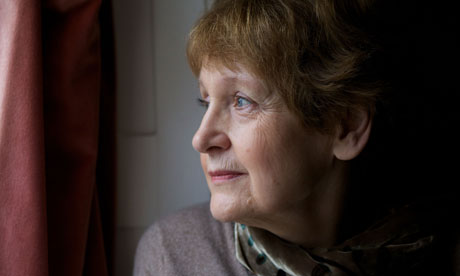
Wendy Cope's best poems have the quality of deadpan jokes you want to pass on. My favourite from the collection that made her name, Making Cocoa for Kingsley Amis (1986), went: "Bloody men are like bloody buses/You wait for about a year/And as soon as one approaches your stop/Two or three others appear." In the decades that have passed since publishing that collection, Cope has strayed from the bus stop and is now more occupied with thoughts of death. This is her first book for 10 years – and she does not show any signs of losing the grumpiness that has always contributed to her humour (it is one of the things that makes her tone original). "My Funeral" begins:
I hope I can trust you, friends, not to use our relationship
As an excuse for an unsolicited ego-trip.
I have seen enough of them at funerals and they make me cross.
At this one, though deceased, I aim to be the boss.
Further instructions follow about how friends are to behave and the poem ends feebly:
And if there aren't many people at my funeral, it will serve me right.
Simplicity and bathos dominate many of the poems, but their effect on readers is not simple at all. Cope uses bathos to unsettle. "Sixty-one and on a diet" is a discomfiting, savage little piece (her bite worse than her bark). It is the opposite of a nursery rhyme – a mortuary ditty. Morbidity, here and elsewhere, is presented as a grim joke – as love once was. And she is playful about her fear of extinction in "Once I'm Dead":
Once I'm dead, I won't mind being dead.
Why worry? I don't want to say goodbye
To everything, to me – the voice that said
'Once I'm dead, I won't mind being dead…'
The poem has its own mini life cycle with its reincarnated line. And in "Keep Saying This", she uses the repeated line "the party isn't over yet" as a walking stick with which to hobble through the verses:
No point in living if you let
Your terror of the end take hold.
Keep saying this and don't forget
The party isn't over yet.
In "Boarders", she describes being teased as a schoolgirl for using "too many long words" and explains it changed her style. "Look how I write," she concludes. What is interesting about the preference for short words and sentences is that it gives her writing a nowhere-to-run, nowhere-to-hide directness. Bald truths are her thing. Rhymes also make for a tighter structure from which there may be no escape. Sometimes, she takes "less is more" to extremes: there are poems here that are the flimsiest slivers of autobiography with nothing much to declare. The best are the least autobiographical – in particular, a bracing sequence about Christmas in which she sings out about the cruelty of the festive season and almost turns the opening poem into a carol:
Why is the baby crying
on this, his special day…
The answer is (in part):
For everyone whose burden
carried through the year
Is heavier at Christmastime
The season of good cheer.
The collection ends with groups of commissioned pieces – a vivid sequence for the Endellion String Quartet (the poem dedicated to a concert-goer trying not to cough made me laugh and clear my throat) and a clutch of uncontroversial poems for Radio 4 that are, like so much in Family Values, enjoyable in the way that Norfolk as a county is: they are, defiantly, flat.
Sixty-one
Sixty-one and on a diet.
Will I end up thin or fat
When my heart and brain go quiet?
Sixty-one and on a diet
Yet again. My hopes run riot:
Better life, new start – all that.
Sixty-one and on a diet.
Will I end up thin or fat?
Wendy Cope

